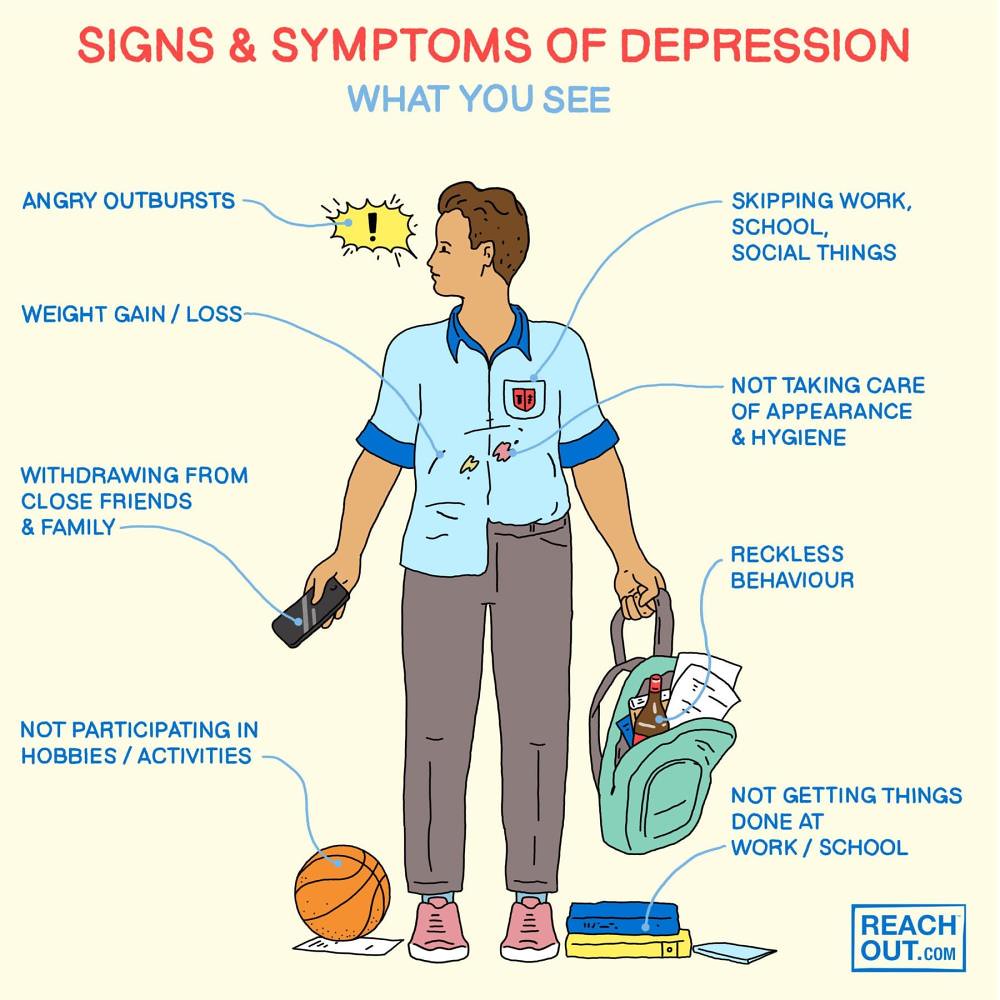
Feeling sad is normal for every human being. However, when we experience too much sadness, we can experience life problems and distress. Depression is a type of mood disorder, in which changes in your mood go beyond the normal range. Symptoms of depression include feelings of hopelessness, helplessness, and depressed mood that last more than two weeks, or even months or years. Some people don’t have all of these symptoms, but those who do will often report experiencing some of the following symptoms.
A strong family or romantic relationship is very important for maintaining good mental health. In general, depression is more likely to occur in individuals with troubled relationships. A recent stressful life event is also a risk factor. A change in major circumstances can cause a great deal of stress and lead to a feeling of hopelessness. A serious illness can also cause feelings of hopelessness. There are many other risk factors for developing depression. You can get help for depression through your family doctor or a therapist.
There are many reasons why people become depressed. The most common is an underlying loss, which can last two months or longer. People who are grieving a loved one may experience depression. They may have difficulty concentrating, lose interest in activities, and feel as though they will never feel happy again. For this reason, a person suffering from depression needs help to overcome these symptoms. Talk therapy and antidepressants can also be helpful.
Getting the right diagnosis is crucial when treating depression. A doctor can diagnose depression based on symptoms, and can refer a patient to a mental health professional if necessary. A physician should be able to provide the appropriate treatment for a patient with depression, such as a medication. A medical professional will also recommend the best treatments based on their diagnosis. If you have symptoms of major depressive disorder, your doctor will prescribe a treatment that addresses this specific problem.
It is important to seek help for depression. The symptoms of depression are a sign of a mood disorder. During a depressed state, you may feel drained, worthless, and guilty all the time. It may also be difficult to make decisions and focus. A person suffering from depression may have difficulty sleeping or concentrating. They may also experience difficulty in making their own decisions. Lastly, it may be hard to resume normal activity.
Chemicals have also been linked to symptoms of depression. The brain produces many different chemicals. These chemicals are present in the brain and outside the body. Various types of drugs affect people’s well-being. Some medications can make a person depressed. Other treatments may include antidepressants and talking therapy. These therapies are designed primarily to treat long-term depression. Sometimes a person may experience some of these symptoms.
Chemicals play an important role in a person’s depression. They are present inside the brain and outside and are responsible for our mood and perception. Research has also shown that genetics can increase the risk of depression. It is also known that the use of alcohol and drugs provokes depression. These substances, however, do not cause any physical problems. They can only increase the risk of developing the disease. Some drugs and alcohol abuse are contraindicated for people suffering from depression.
Some people are genetically predisposed to depression. Some people inherit the long gene from one parent and the short gene from the other. The short gene is more likely to cause depression. Other causes of depression are anxiety and other disorders. They may not be immediately noticeable to a person, but they can affect his mood. Thus, it is important to see a doctor and visit the site Produk kesehatan if you experience any of these symptoms.
There are many reasons for depression. There is no single event that causes a person to develop a disease. On the contrary, it is a combination of factors. In some cases, genes predispose a person to a certain type of depression, while in others they do not. In addition, drug and alcohol use can also contribute to depression. These factors are interrelated and often affect the same person in different ways. While a person’s genetics play a role in a person’s risk of developing depression, other factors that lead to depression are more common.